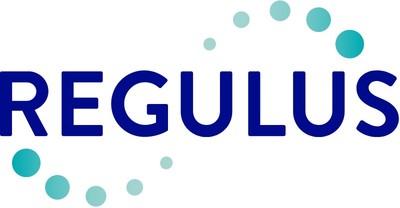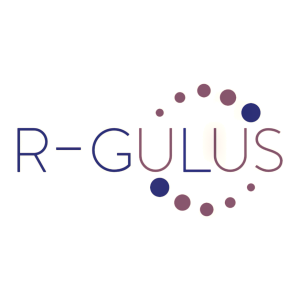Regulus Therapeutics Announces Completion of Enrollment in Third Cohort of Phase 1b Multiple-Ascending Dose (MAD) Clinical Trial of RGLS8429 for the Treatment of Patients with Autosomal Dominant Polycystic Kidney Disease (ADPKD)
"The completion of our third and final randomized placebo-controlled cohort in the Phase 1b MAD study is an exciting step for Regulus, and we are happy to reach this stage of development for RGLS8429," said Jay Hagan, CEO of Regulus. "Our team is motivated and gearing up for 2024 when we expect topline data from our second cohort in Q1 2024, topline data from our third cohort in mid-2024, and the initiation of the fourth cohort, an open label fixed dose, of RGLS8429."
The Phase 1b MAD study is a double-blind, placebo-controlled trial evaluating the safety, tolerability, pharmacokinetics and pharmacodynamics (PK/PD) of RGLS8429 in adult patients with ADPKD. The study will evaluate RGLS8429 treatment across three different weight-based dose levels, including measuring changes in polycystins, height-adjusted total kidney volume (htTKV), cyst architecture, and overall kidney function. The third cohort is being dosed at 3 mg/kg of RGLS8429 or placebo every other week for three months. The protocol was amended to include a fourth cohort of subjects who will receive an open label fixed dose of RGLS8429 to compare biomarker and safety data to the weight-based dosing.
More information about the MAD clinical trial is available at clinicaltrials.gov (NCT05521191).
About ADPKD
Autosomal Dominant Polycystic Kidney Disease (ADPKD), caused by mutations in the PKD1 or PKD2 genes, is among the most common human monogenic disorders and a leading cause of end-stage renal disease. The disease is characterized by the development of multiple fluid filled cysts primarily in the kidneys, and to a lesser extent in the liver and other organs. Excessive kidney cyst cell proliferation, a central pathological feature, ultimately leads to end-stage renal disease in approximately
About RGLS8429
RGLS8429 is a novel, next generation oligonucleotide for the treatment of ADPKD designed to inhibit miR-17 and to preferentially target the kidney. Administration of RGLS8429 has shown robust data in preclinical models, where clear improvements in kidney function, size, and other measures of disease severity have been demonstrated along with a superior pharmacologic profile in preclinical studies compared to Regulus' first-generation compound, RGLS4326. Regulus announced completion of the Phase 1 SAD study in September 2022. The Phase 1 SAD study demonstrated that RGLS8429 has a favorable safety and PK profile. RGLS8429 was well-tolerated with no serious adverse events reported and plasma exposure was approximately linear across the four doses tested and is similar to the PK data from the first-generation compound. In the Phase 1b MAD study Regulus announced both top line data from the first cohort of patients, and completion of enrollment for the second cohort of patients in September 2023. After review of all available safety data, Regulus has advanced to the third cohort where dosing has begun, and patients will receive 3 mg/kg of RGLS8429 or placebo every other week for three months. Regulus announced completion of enrollment in the third cohort in January 2024.
About Regulus
Regulus Therapeutics Inc. (Nasdaq: RGLS) is a biopharmaceutical company focused on the discovery and development of innovative medicines targeting microRNAs. Regulus has leveraged its oligonucleotide drug discovery and development expertise to develop a pipeline complemented by a rich intellectual property estate in the microRNA field. Regulus maintains its corporate headquarters in
Forward-Looking Statements
Statements contained in this presentation regarding matters that are not historical facts are "forward-looking statements" within the meaning of the Private Securities Litigation Reform Act of 1995, including statements associated with the Company's RGLS8429 program, the expected timing for initiating clinical studies, potentially achieving therapeutic efficacy and clinical translation for ADPKD patients, the expected timing for reporting topline data, the timing and future occurrence of other preclinical and clinical activities and the expected length of our cash runway. Because such statements are subject to risks and uncertainties, actual results may differ materially from those expressed or implied by such forward-looking statements. Words such as "believes," "anticipates," "plans," "expects," "intends," "will," "goal," "potential" and similar expressions are intended to identify forward-looking statements. These forward-looking statements are based upon Regulus' current expectations and involve assumptions that may never materialize or may prove to be incorrect. Actual results and the timing of events could differ materially from those anticipated in such forward-looking statements as a result of various risks and uncertainties, which include, without limitation, the approach we are taking to discover and develop drugs is novel and may never lead to marketable products, preliminary or initial results may not be indicative of future results, preclinical and clinical studies may not be successful, risks related to regulatory review and approval, risks related to our reliance on third-party collaborators and other third parties, risks related to intellectual property, risks associated with the process of discovering, developing and commercializing drugs that are safe and effective for use as human therapeutics and in the endeavor of building a business around such drugs, and the risk additional toxicology data may be negative and our need for additional capital. These and other risks are described in additional detail in Regulus' filings with the Securities and Exchange Commission, including under the "Risk Factors" heading of Regulus' most recently filed quarterly report on Form 10-Q. All forward-looking statements contained in this press release speak only as of the date on which they were made. Regulus undertakes no obligation to update such statements to reflect events that occur or circumstances that exist after the date on which they were made.
![]() View original content to download multimedia:https://www.prnewswire.com/news-releases/regulus-therapeutics-announces-completion-of-enrollment-in-third-cohort-of-phase-1b-multiple-ascending-dose-mad-clinical-trial-of-rgls8429-for-the-treatment-of-patients-with-autosomal-dominant-polycystic-kidney-disease-adpkd-302024791.html
View original content to download multimedia:https://www.prnewswire.com/news-releases/regulus-therapeutics-announces-completion-of-enrollment-in-third-cohort-of-phase-1b-multiple-ascending-dose-mad-clinical-trial-of-rgls8429-for-the-treatment-of-patients-with-autosomal-dominant-polycystic-kidney-disease-adpkd-302024791.html
SOURCE Regulus Therapeutics Inc.









